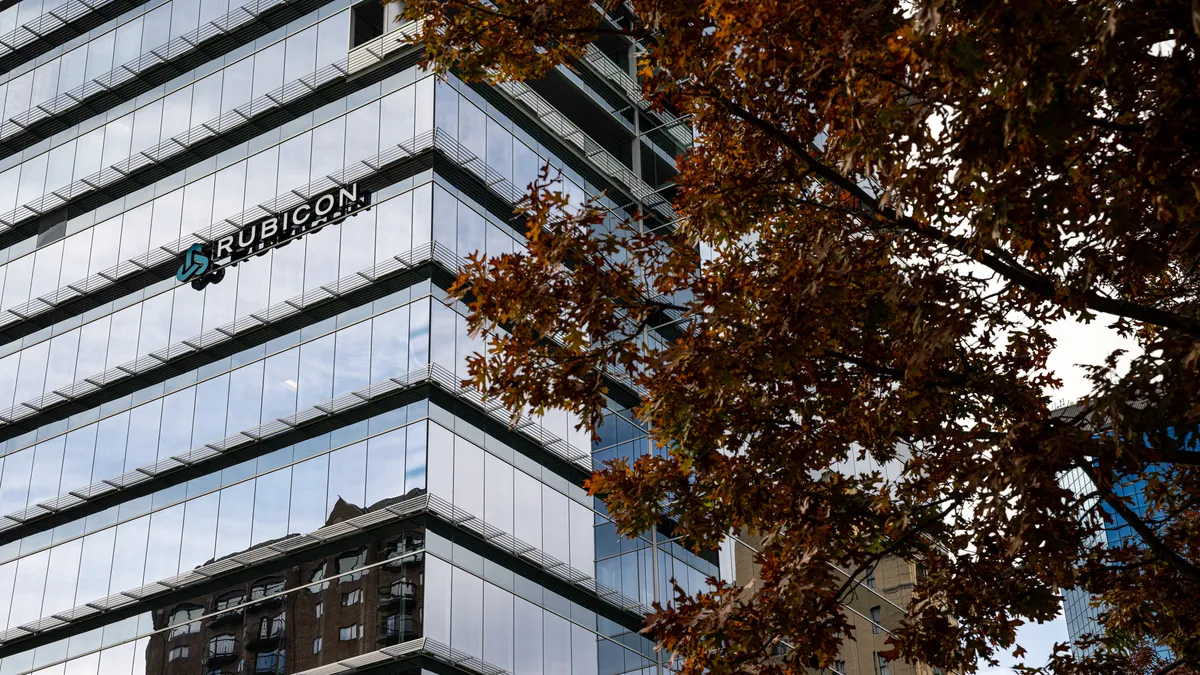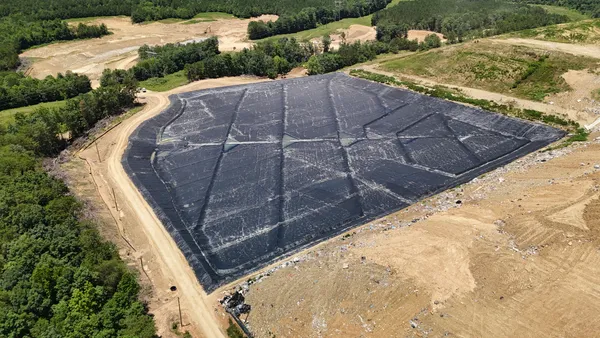A major Rubicon Technologies shareholder has proposed buying up the company’s outstanding shares and taking it private. The March 12 proposal came as the stock was trading at $0.67 at market close; Rubicon's share price has slid for most of the year, dipping below $1 in February.
Jose Miguel Enrich, the investor proposing the deal, currently owns 42.3% of shares in Rubicon, about half of which are under his own name and the rest are in various investment entities. Enrich has holdings across North America.
Rubicon declined to comment on the proposal. There’s no timeline for the deal, and Rubicon has not officially responded to the offer. Any agreement would need to be approved by the board of directors and outside shareholders.
Besides Enrich, Palantir Technologies remains a shareholder of more than 10% of the company, according to filings with the U.S. Securities and Exchange Commission. The Guardians of New Zealand Superannuation fund also remains one of Rubicon’s larger shareholders, with about 7% of the company’s stock, according to a January filing.
At March 12 prices, the shares of common stock not owned by Enrich would have totaled about $16.2 million. The take-private deal also notes Enrich would acquire warrants to purchase 498,119 shares of common stock that were outstanding as of Sept. 30.
Rubicon has faced rocky financial conditions since entering a go-public deal with a special purpose acquisition corporation in December 2021 that valued the company at $1.7 billion. After a protracted timeline, the deal closed in August 2022 and Rubicon ended up with $197 million in proceeds — less than expected. Founder and then-CEO Nate Morris stepped down in October of that year.
Since then, the company has pursued a profitability plan that recently led to layoffs of "less than 20 people," as the company discussed in its end-of-year earnings report. That February announcement included the departure of its then-Chief Operating Officer Renaud de Viel Castel. The company reported 2023 revenue of $697.6 million and improved profitability metrics, shrinking its net loss to $77.6M in 2023 versus $281.8M in 2022.
While Rubicon completed a reverse stock split in September to ensure compliance with the New York Stock Exchange after its share price dipped below $1, the company’s shares have struggled again this year. Sources speculated in recent weeks that a go-private deal could be in the works, and investment firm Jefferies dropped coverage of the company earlier this month. The New York Stock Exchange can delist companies whose average closing price is below $1 for more than 30 consecutive trading days.
Founded in 2008, Rubicon operates as a digital marketplace for waste and recycling companies, municipalities and their clients. The company reports deploying its technology in more than 100 municipalities across North America with a network of over 8,000 hauling and recycling partners.
The company said it had achieved the highest-priority items on its profitability plan by last summer, and it has promoted its software-as-a-service business as a growing revenue source. It remains unclear how much that service contributes to Rubicon’s underlying business and no 2024 financial guidance has been provided for the business to date.
Waste Dive Lead Editor Cole Rosengren contributed reporting for this story.















